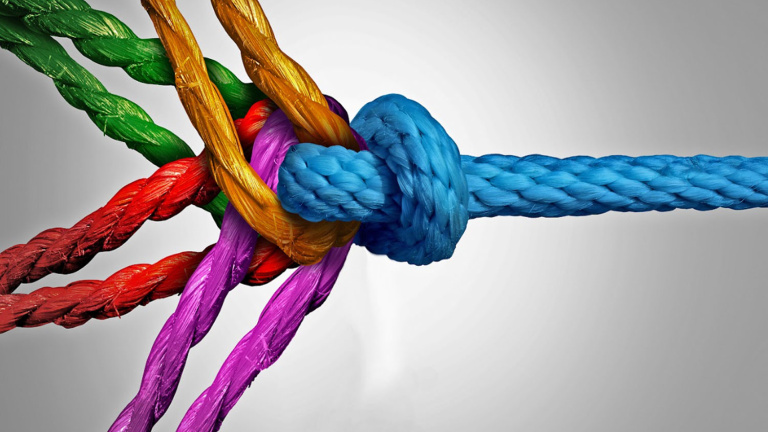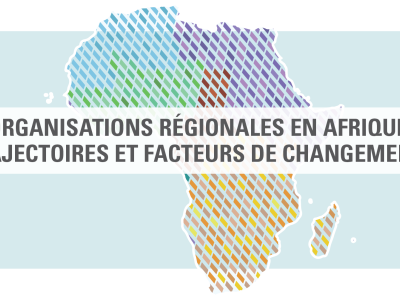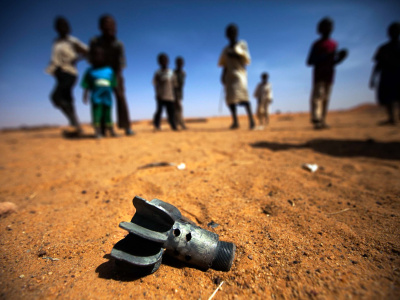
Moving beyond conflict: the critical role of collaborative partnerships in tackling abuses in minerals supply chains
Assembling governments, industry and civil society together in a partnership is an effective way to identify and address conflict, social abuses such as child and forced labour, and environmental abuses like mercury pollution in mines. However, such collaboration does not come without challenges. Intel’s Julian Lageard zooms in on the European Partnership for Responsible Minerals.
Pursuing responsible minerals
More than a decade ago it was revealed that money from ICT companies sourcing tin, tantalum, tungsten and gold (3TG) from the Democratic Republic of Congo (DRC) and surrounding countries was being diverted to fuel armed conflict – instead of improving the socio-economic well-being of local, often artisanal mining communities.
Something needed to be done. Industry established what is now the Responsible Minerals Initiative (RMI) and the United States introduced the Dodd Frank Act, which requires publicly-listed companies to provide the Securities and Exchange.
Commission annual reports show that their 3TG supply chains are ‘conflict free’ according to the legal definition under Dodd Frank. While Dodd Frank continues to send a strong signal to the marketplace, there has been a negative impact. Companies, concerned with the additional administrative and financial burden this entails, have decided to source their minerals from other jurisdictions. ‘Conflict-free’ became ‘Congo-free’.
In 2016, the EU adopted a regulation that places legal requirements on 3TG importers. They must undertake due diligence in their 3TG supply chains from all conflict-affected and high risk areas (CAHRAs), not just DRC and surrounding countries, according to the OECD five-step framework. These obligations start on 1 January 2021.
A European partnership
A not-for-profit public-private partnership, the European Partnership for Responsible Minerals (EPRM), was formed to act as an accompanying measure to the EU regulation. It will help make the rules work on the ground in CAHRAs by improving the social and economic conditions for mine workers and local communities, at the same time increasing the number of mines adopting responsible business practices.
The partnership brings together governments, supply chain actors (in upstream, mid-stream and downstream industry) and civil society. The founding strategic partners include the Netherlands, the UK, Philips, Intel, Solidaridad, Diakonia and the International Peace and Information Service (IPIS). More members have joined since. Observers are the European Commission, the EU External Action Service, OECD and the UN Environment Programme. The EPRM also works with knowledge partners such as academia and the Global Campus of Human Rights.
Getting the partnership up and running
In bringing such diverse interests together a clear and transparent governance structure is imperative. For the EPRM, the best part of two years was spent making the collaboration operational. A secretariat was selected, the Dutch Enterprise Agency RVO, because of its prior experience managing public-private partnerships. Some might consider two years a long time. But getting the structure right is a prerequisite for establishing an effective multi-stakeholder partnership. A memorandum of understanding was drafted and signed by members, and a governance board was established comprising three members from each of the three pillars (government, industry and civil society). The governance board consists of the Dutch, UK and German governments, Philips, RMI, Valcambi, Solidaridad, IPIS and Diakonia. The EPRM Chair rotates between the government, industry and civil society pillars. Solidaridad is the Chair for 2019. Apart from monthly board meetings, an annual All Member Event is held to update members on the status of operations and to solicit input on strategic directions and next steps.
Another challenge has been to involve non-ICT sectors that consume 3TG. Companies, both upstream and downstream, which import 3TG into the EU fall under the scope of the EU legislation. However, the majority of downstream industry is out of its legal reach. Expanding membership beyond Europe has also been a slow process.
It also took a long time to introduce an appropriate membership fee structure. The EPRM is funded by governments and industry. Governments can pay what they like. For industry there is a tiered structure. The most expensive membership category is for companies that want to become a strategic partner. Then there is regular membership. A reduced fee applies to trade associations and to collaborative partnerships if their core business is responsible minerals or if 75% of their members are small and medium sized enterprises (SMEs). SMEs themselves pay a reduced fee as well. Regular trade associations pay the corporate membership fee, but are encouraged to enlist one or more of their member companies to the join the EPRM. If they do, the trade association gets a fee reduction, depending on how many member companies they bring in. Civil society groups pay no fee.
Why sign up?
Sustainable Development Goal 17 (SDG17) identifies partnerships as a key means to achieve the 2030 Agenda. The EU’s responsible minerals legislation has a global geographical scope. With the EPRM as an accompanying measure, it will set the worldwide regulatory direction operating under the OECD due diligence framework. All global actors who are in pursuit of responsible minerals supply chains are welcome to join, provided certain criteria are fulfilled.
Now the EPRM is fully operational and has started delivering on its objectives. Upstream projects are being funded in a broad array of countries, from Columbia to Rwanda and Indonesia. These address various issues including empowering women in artisanal mining communities to access credit, technical training on responsible mining, identifying and mitigating sustainability challenges in mining, and providing downstream companies information about the origin of minerals in their products.
Moving forward, job number one for the EPRM is to further support industry, in particular, importers and SMEs which have to comply with the legal obligations. It will support upstream and downstream member companies to communicate their due diligence practices. Facilitating information exchange via the EPRM network and knowledge platform is another priority, as is the application of learning to non-3TG minerals supply chains like cobalt. The goal is to advance understanding of the OECD framework mineral scope, geographical scope (all CAHRAs with data updated in real time), industry schemes (RMI, London Bullion Market Association LBMA, Responsible Jewellery Council RJC, etc.) and company communication on supply chain due diligence practices.
Interests of different stakeholders
Assembling such a broad and diverse range of stakeholders with different interests is not easy. We all want to do something about abuses and know that something has to be done in minerals supply chains, but we often come at it from different angles. What unites the various parties is a common realisation that no single interest and entity can solve the problems alone. The only way is to work together in collaborative partnerships.
Governments want to join the EPRM to be part of the solution and help improve the situation in and around mines. They also want to participate in joint actions in relation to the EU regulation. The EPRM will likely be used as a tool to support the work of the national competent authorities that have to implement the rules. Multi-stakeholder cooperation leads to the best mix of experience, knowledge and budgets for projects. Governments value the EPRM’s capacity to help European companies reduce the risks in their minerals and metals supply chains. The EPRM can also serve as an instrument for donor coordination.
The EPRM enables companies to make progress in the field of responsible minerals, acting as an important accompanying measure to the EU regulation. Through it, companies can take joint action to tackle responsible mineral sourcing. The EPRM supports companies, especially SMEs, in conducting due diligence by providing a platform for sharing knowledge, best practices and lessons learned. Finally, the EPRM helps to foster stronger linkages between downstream and upstream partners throughout the entire supply chains.
Civil society actors are interested in joining the EPRM because development is needed alongside regulatory measures, and complex issues call for joint, concrete action. They also find it imperative that local, artisanal and small-scale mining perspectives are covered. Moreover, civil society sees the opportunity to shape the EPRM and ensure credible implementation of the EU rules, productive synergies and complementarity of the EPRM with other initiatives, avoiding duplication. NGOs can use the EPRM to connect to downstream supply chain actors, for increased engagement and mutual understanding. Supply chain actors can be mobilised for meaningful change and to achieve more speed and scale. The EPRM is a means of finding and developing opportunities for partners in activities in the field. It offers a platform for learning and exchange; partnerships in shared goals with critical fellow travellers. Through the EPRM, civil society can stay abreast of developments on EU legislation implementation, ensure credible implementation of the EU legislation and make sure that the voices of local communities are heard.
With such an array of different interests, this kind of multi-stakeholder collaboration is a lengthy process and most definitely not a quick fix. Getting the governance structure right and building trust among non-traditional allies is a time-consuming process, but it is worth the effort. The partners understand the gravity of supply chain abuses. They are driven by a common will to do something about it, at the same time realising that no one interest can identify and address these abuses acting alone.
About the author
Julian Lageard is Intel’s Director of Corporate Government Affairs for Europe, the Middle East and Africa. Intel is one of the founding strategic partners of the European Partnership for Responsible Minerals (EPRM).
www.responsibleminerals.eu
eprm@rvo.nl
Read the full magazine issue







